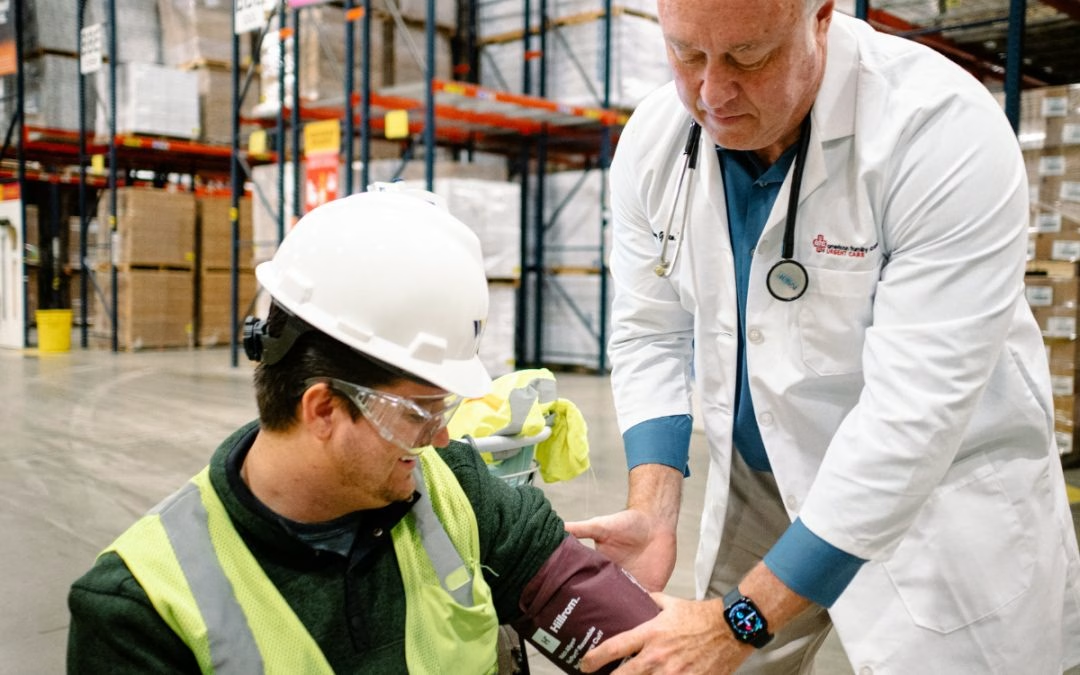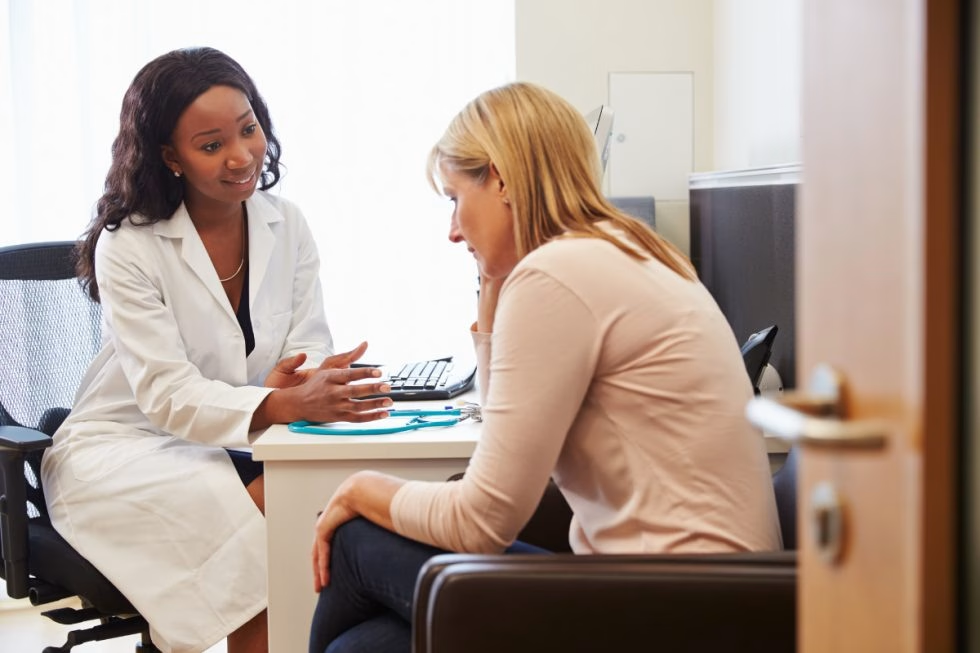Now Open M-F 7:30 am to 8:00 pm and Sa/Su 8:00 am to 5:00 pm
Find The Location Nearest Covid-19 Testing
We think you’re located in zip code 28217. Not Right?
STD Testing Near Me SW Charlotte – AFC Urgent Care Tyvola Rd
At AFC Urgent Care Tyvola Rd, we understand that talking about your sexual health can be uncomfortable, but it’s important to get tested. Don’t risk your health. If you need STD testing, visit our walk-in clinic 7 days a week with no appointment necessary for safe and confidential STD testing.

Does AFC Urgent Care offer STD Testing?
Yes. our SW Charlotte AFC Urgent Care locattion provides confidential STD testing and treatment. If you’re sexually active, especially with multiple partners, it’s important to get tested for STDs. Knowing your status can help protect your health, as well as the health of your partners.
We understand how important sexual health is and how difficult it can be to discuss. That’s why our medical team offers the utmost privacy and respect when it comes to STD testing. The Medical Director of AFC Urgent Care & Family Care, Dr. Todd Rudolph, explains, “At AFC Urgent Care, privacy and respect are the cornerstones of our care. Together, we can determine what types of tests are appropriate for you.”
Our STD testing services are available on a walk-in basis. No appointment is necessary. If you’d like to learn more about our STD testing services, please visit AFC Urgent Care on Tyvola Road off Interstate 77 or call us today at (704) 228-1784.
What are Sexually Transmitted Diseases (STDs)?
Sexually transmitted diseases (STDs), also known as sexually transmitted infections (STIs), are caused by bacteria, parasites, and viruses that are passed from one person to another through sexual contact. While some STDs can be treated with medications, others have no cure and can lead to long-term health problems if left untreated.
How do you get an STD?
STDs are infections spread through sexual contact, including vaginal, oral and anal sex. Regardless of how many sexual partners you have had, your sexual orientation or your marital status, you are at risk of contracting an STD when you have sex. That’s why we recommend getting tested for an STD if you have been sexually active. It’s important to protect your long-term health by preventing and managing STDs.
Be Informed About STDs in Charlotte and North Carolina
As a Charlotte resident, it’s essential to stay informed about the STD rates in Mecklenburg County and all of North Carolina. Unfortunately, rates for STDs have been on the rise in recent years. Here are some key data points about STDs in Mecklenburg County and all of North Carolina:
- From 2020 to 2021, syphilis cases increased by 26% in Mecklenburg County
- Since 2020, Mecklenburg County saw a 34% increase in HIV cases.
- North Carolina has the 5th highest rate of chlamydia cases in the U.S.
It’s important to get tested regularly, use protection when engaging in sexual activities, and talk to your partners about STDs. Taking these steps will help protect your health and the health of those around you. If you have any questions, please call or visit our office. We’re here to help!
What are the most common STDs?
While these are some of the most common, there are over 20 different types of STDs.
Common STD Symptoms
Sexually transmitted diseases (STDs) are caused by either bacteria, viruses, or parasites, and are generally contracted through unprotected vaginal, oral, or anal sex. Unfortunately, many people don’t experience any symptoms while they have an STD, so it can be hard to detect unless you’re regularly tested. But for those who do, some common symptoms include:
- pain during sex
- pain while urinating
- Pain and/or itching to your penis, vagina, vulva, and/or anus
- Sores on and around your genitals
- Abnormal discharge from your penis or vagina
- Bleeding between periods
If you’re concerned that you may have an STD, it’s important to get tested. The only way to know for sure is to get tested and follow your doctor’s advice. It’s also important to practice safe sex, use protection, and get tested regularly. This will help protect you and your partner from the risks of STDs.
Should I get test for STDs?
If you’re sexually active, it’s important to get tested for STDs. Even if you don’t have any symptoms, avoiding treatment could have long-term, negative effects on your health or cause you to infect others. If you’re pregnant or planning to have a baby, it’s especially important to get tested. Some STDs can be passed on and cause significant health problems to babies during childbirth.
At AFC Urgent Care, we offer comprehensive STD testing services to help you take control of your sexual health. Our experienced and caring team is here to answer any questions you may have and provide you with the testing and treatment you need.
STD Treatment and Prevention
When it comes to protecting your health, knowledge is power. If you’re sexually active, it’s important to know how to prevent and treat Sexually Transmitted Diseases (STDs).
If you think you may have an STD, it’s important to get tested as soon as possible, as some STDs can become a serious threat to your health if left untreated. While not all STDs can be cured, almost all of them can be treated and managed to allow you to live a healthy life. STDs are usually treated with antibiotics or antiviral drugs. But prevention is always better than cure. Here are some methods to consider:
- Use condoms during sex
- Limit your sexual partners and always get screened for STDs before having sex; there are some treatments available for those living with an STD to help reduce the chances of spreading it to others
- Get vaccinated for hepatitis A, and hepatitis B
By following these steps, you can significantly reduce your risk of contracting an STD and maintain your health.
What is Chlamydia?
Chlamydia is a common STD caused by a bacterial infection. It is spread through sexual contact, such as vaginal, oral, or anal sex. Chlamydia often comes without symptoms. If symptoms do appear, they usually show up one to three weeks after being infected. Common chlamydia symptoms include:
- pain or burning while urinating
- pain during sex
- lower abdominal pain
- abnormal discharge from the penis or vagina
- vaginal bleeding between periods
If left untreated, chlamydia can lead to serious health issues. It can also be passed from mother to baby during birth, which can negatively impact the baby’s health. Fortunately, chlamydia can be cured with antibiotics. If you think you may have chlamydia or would like to find out more about the infection, contact your healthcare provider.
What is Gonorrhea?
Gonorrhea is a common but very serious bacterial infection that is spread through sexual contact. It can grow on your genitals, throat, mouth, eyes, or anus, and often doesn’t show any symptoms. If you do experience symptoms, they may include:
- painful urination
- abnormal discharge
- excessive bleeding during periods or
- between periods
- swollen testicles
- itching around the genitals
Gonorrhea can be treated with antibiotics, but if left untreated, it can lead to more serious health issues down the road. It can also be passed to your baby during childbirth, so it’s important to get tested if you are pregnant.
What is Syphilis?
Syphilis is a common STD and bacterial infection that occurs in stages. It is spread through vaginal, oral, or anal sex and affects your genital area and sometimes your mouth. If caught early on, syphilis can be treated easily through antibiotics. However, if it goes untreated for too long, it can be very dangerous.
During the first stage, small sores will appear on your genitals. You will likely not recognize them as syphilis symptoms, as they are painless and look much like ingrown hairs or harmless bumps. During the second stage, you will likely develop a rash and more sores on your genitals, anus, and inside your mouth. You may also experience the following during the second stage of syphilis:
- fever
- fatigue
- headaches
- weight loss
- hair loss
- aches
During the third stage, many people experience no symptoms at all. But for about 15% of people who don’t get treated, the infection progresses to a fourth stage, which can lead to severe organ and brain damage. If you’re at risk for syphilis or have any of the symptoms, it’s important that you get tested and seek treatment right away. The earlier syphilis is treated, the better. Some of the symptoms of the fourth stage of syphilis include:
- vision and/or hearing loss
- dementia
- paralysis
- blindness
- heart disease
- death
If you think you may have syphilis, don’t hesitate to talk to your doctor about your symptoms and get tested. Early diagnosis and treatment can help prevent serious complications.
What is HIV? Is HIV the same as AIDS?
HIV is a virus that can cause serious damage to your immune system, leaving you vulnerable to a wide range of illnesses and infections. HIV can also lead to a more serious condition called AIDS. At the moment, there is no cure for HIV, but there are ways to manage it and help prevent it from progressing to AIDS.
HIV is most commonly transmitted through unprotected sexual activity, but it can also be passed through touching infected bodily fluids, or coming in contact with a contaminated needle or open wound. If you’re worried about coming in contact with HIV, it’s important to do your research and find a doctor’s office, hospital, or medical center with the right safety protocols in place. For example, if you’re getting a body piercing, you should make sure that the facility is using sterile needles and other safety measures.
Many people don’t experience any symptoms for a long time after being infected with HIV. In the early stages, you may experience flu-like symptoms such as:
- fever
- chills
- sore throat
- aches
- headache
- rash
- nausea
Some people may also develop chronic symptoms like:
- headaches
- unusual fatigue
- fever
- diarrhea
If you’re living with HIV, you should talk to your doctor about the best ways to manage it. With the proper treatment, you can significantly reduce the risk of passing it on to sexual partners or a baby during pregnancy. And by taking the right steps, you can still lead a long and healthy life.
What is Trich or Trichomoniasis?
Trichomoniasis, or “trich”, is a sexually transmitted infection (STI) caused by a parasite that is passed through unprotected sex. It can affect the vaginal area in women and the urinary tract in men, and most people don’t experience any symptoms. If symptoms do occur, they can include:
- unusual discharge
- vaginal itching and irritation
- unpleasant smell
- pain while urinating
- pain during sex
We understand the importance of getting tested for trich if you think you may have contracted it. Trich can be treated with medication, so it’s important to get tested right away. We offer a range of STI testing services, so you can get tested quickly and easily.
What is Herpes?
Herpes is a viral infection caused by the herpes simplex virus (HSV). There are two types of HSV: HSV-1 and HSV-2. HSV-1 typically causes oral herpes, which is characterized by cold sores or fever blisters on or around the mouth. HSV-2 usually causes genital herpes, which is characterized by sores or blisters on or around the genitals.
Herpes is highly contagious and can be transmitted through direct skin-to-skin contact, like sexual activity or sharing of personal items such as towels or razors. It can also be transmitted from an infected mother to her baby during childbirth. Symptoms of herpes may include:
- painful sores or blisters on the skin
- fever
- body aches
- swollen lymph nodes
- painful urination
Some people may not have any symptoms at all, or symptoms may be so mild that they go unnoticed.
Currently, there is no cure for herpes, but antiviral medications can be used to reduce the severity and frequency of outbreaks. These medications can help to shorten the duration of outbreaks and reduce the risk of transmission to others. In addition, people with herpes can take steps to prevent outbreaks, such as avoiding triggers that may cause an outbreak (such as stress or overexposure to the sun) and practicing safe sex.
Preventing the spread of herpes is important because the virus can be transmitted even when there are no visible symptoms. Using condoms during sexual activity and avoiding sharing personal items can help to reduce the risk of transmission. It is also important to inform sexual partners if you have herpes, as they may be at risk of contracting the virus.
What are Pubic Lice?
Pubic lice, also known as crabs, are small, wingless insects that live on the skin and hair of the genital area. They are contracted through sexual contact or close contact with infested clothing or bedding. Symptoms of pubic lice include:
- itching in the genital area
- visible lice or nits (eggs) on the hair
- small red bumps or
- sores on the skin
In severe cases, the lice can cause a secondary infection due to scratching.
Treatment options for pubic lice include over-the-counter or prescription creams or lotions that kill the lice and their eggs. It is important to follow the instructions on the package carefully and to treat all areas of the body where lice may be present, including the pubic area, thighs, and underarms. In addition, all clothing, bedding, and towels should be washed in hot water and dried on high heat to kill any remaining lice or eggs. It is also a good idea to check for lice and nits regularly, especially after sexual contact or close contact with infected individuals. If lice are found, it is important to seek treatment immediately to prevent the spread to others.
Is Hepatitis considered an STD?
Hepatitis is a viral infection that causes inflammation of the liver and comes from a variety of things, including viral infections, alcohol abuse and certain medications. There are five different types of hepatitis, but the most common strains in the United States are hepatitis A, B and C.
Hepatitis B is considered an STD because it’s contracted through sexual contact. However, all strains can technically spread through sexual intercourse. Hepatitis A is transmitted through contaminated food or water. Hepatitis B spreads through contact of bodily fluids (blood, semen or vaginal fluids) while hepatitis C is mainly transmitted through contact with infected blood (typically by contaminated needles). Hepatitis symptoms can range from mild to severe and usually include the following:
- fatigue
- nausea
- abdominal pain
- jaundice (yellowing of the skin and whites of the eyes)
In some cases, there may be no symptoms at all.
Hepatitis A and B are the most dangerous strains, but the best prevention is vaccination. Currently, hepatitis A and B are incurable, but there are antiviral medications available to treat the symptoms and reduce transmission to others. Unfortunately, there is no vaccine for hepatitis C. The good news is hepatitis C is curable through treatment, though it may take several months.
Learn more about AFC’s Hepatitis Testing Panels.
Less common STDs
There are so many types of STDs, and it’s often difficult to be aware of so many diseases and infections. Here are some less common but highly dangerous STDs:
- Scabies
- Chancroid
- Molluscum contagiosum
- Lymphogranuloma venereum
These are lesser-known STDs, but they still affect people every year. If you’re sexually active, it’s important to understand the risks associated with these four STDs. They can cause serious health issues, such as infertility and more if left untreated.
 How Can We Help?
How Can We Help?
- PATIENT SERVICES
- COVID-19 SERVICES
- TELECARE
- EMPLOYER RESOURCES
- PATIENT RESOURCES
- ABOUT US
AFC Urgent Care FAQs
-
What will my STD test consist of?
That depends on what we’re ultimately testing for. Some tests include swabs of the genitals or mouth, while others require urine or blood tests.
-
What are the risks of leaving STDs untreated?
There are many different STDs, so the risks will depend on the disease. Cancer, infertility, transmission to sexual partners, and harm to unborn babies are a few risks of leaving STDs untreated.
-
Which STDs can AFC test for?
We’re able to test for some of the most common STDs including gonorrhea, genital warts and herpes, chlamydia, HPV, and more. Call your local clinic for a full rundown of the testing they can provide.
Q&A You Want to Answer?

Don't wait to get the medical attention you need.
CALL US TODAY | (704) 228-1784


